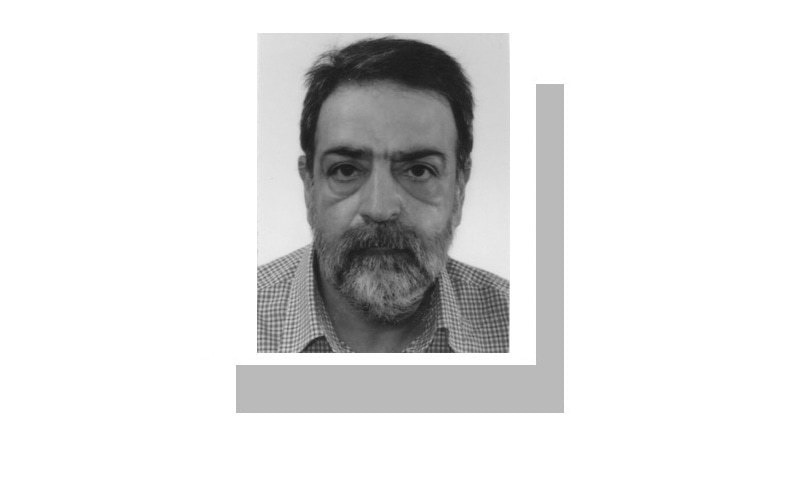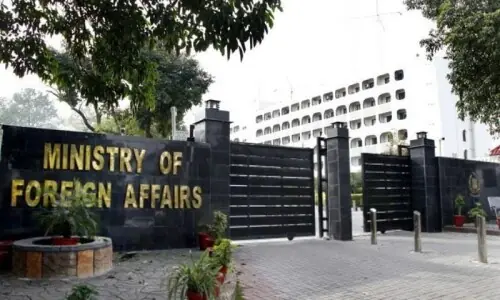THE extradition case targeting WikiLeaks founder Julian Assange has been compared to the Soviet show trials under Stalin. That is obviously an exaggeration, although the court proceedings have provided valid cause for concern.
The socially distanced hearings in a London courtroom concluded earlier this month. Lawyers for the defence and the US government will make their final submissions in writing over the next few weeks, followed by a verdict on Jan 4. Whichever way it goes, an appeal is almost inevitable.
The case should be of profound concern not just to journalists everywhere, but to anyone who cherishes the idea of occasionally being enlightened about important facts that governments would rather bury.
WikiLeaks’ biggest and most consequential scoop was the publication a decade ago of a massive tranche of US military and State Department documents, provided by a junior intelligence analyst attached to the occupation forces in Iraq. Chelsea Manning — then known as Bradley — was found out, maltreated and imprisoned until Barack Obama pardoned her.
The Assange trial should be of profound concern.
She was re-imprisoned under the Trump administration until last March for refusing to testify against Assange. The initial US charge against Assange related solely to the attempted hacking of a Pentagon computer on the basis of a partial password hash provided by Manning. It didn’t work, and was anyhow unrelated to the information that Manning leaked.
A more recent charge is that he tried to assist Manning in concealing her identity. That too didn’t work. But surely the bigger point is that it’s more or less obligatory for journalists to try to protect their sources. The identity of Deep Throat, one of the most significant whistleblowers of the 20th century, remained secret for decades.
“Conspiring” to obtain information, whether from Manning or from other potential sources, is among the other laughable charges against Assange. That’s the bread and butter of investigative journalism.
The US authorities were keen to silence Assange and cancel WikiLeaks. WikiLeaks partnered with a number of prominent newspapers, including this one, in sifting through the American treasure trove it had acquired. Its relationship with some of those outlets subsequently soured, and the likes of Guardian and NYT have lately been reluctant to full-throatedly back Assange, even though they oppose his extradition.
The Swedish accusations of rape provoked valid questions about his character, even though he was never formally indicted. At the time, Assange’s reluctance to be extradited to Sweden to be interrogated was widely perceived as morally questionable, and the argument that he was at risk of being bundled off to the US received short shrift. In retrospect, though, given the convoluted details of that sordid saga, the fears were possibly valid. By then a number of prominent American personalities had wondered aloud why he couldn’t simply be assassinated.
Among them was a real estate tycoon by the name of Donald Trump. Some years later, he was more of a fan boy. “I love WikiLeaks!” he declared after the organisation leaked a big bunch of emails from the Democratic National Committee, showing his 2016 rival Hillary Clinton in a poor light. Amid some evidence of collusion — or at least contacts — between the Trump campaign and WikiLeaks, this also sharply increased the left-liberal disenchantment with Assange.
It is somewhat ironic, then, that whereas the Obama administration eventually decided against indicting him, the Trump regime is in full-throttle pursuit — reportedly after Assange rejected a pardon in return for revealing the source of the DNC leak. (US intelligence blames its Russian counterparts, but that narrative doesn’t sit well with the Trump team.)
Anyhow, the point is that it is neither Assange’s political predilections nor his personality — which has several critics among his acquaintances — that is on trial in the extradition proceedings. He has effectively been indicted for publicising inconvenient truths. No one seriously believes he would receive a fair trial in the US, and even a much shorter jail term than the maximum possible 175 years would effectively be a death sentence.
Enthusiastic defenders of Assange range from John Pilger and the former presidents of Ecuador and Brazil to Daniel Ellsberg, the whistleblower behind The Pentagon Papers, which arguably helped to end the Vietnam war. Almost 50 years ago, Ellsberg was described by US officials as the most dangerous man in the world. More recently that enviable slot has been occupied by Assange.
Mainstream media in the West has been hesitant to mount a campaign in defence of Assange, even though many senior journalists — including some who dislike him personally — recognise the threat his possible fate poses to their profession. The best way of avoiding that would be to not extradite him to a rogue state whose leader routinely rubbishes the press as an enemy of the state.
Published in Dawn, October 14th, 2020































